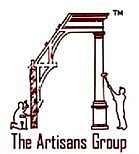In a previous edition of Construction Alert we reported to you on White v. Cridlebaugh (2009) 178 Cal.App.4th 506, in which the court confirmed that an unlicensed contractor could be sued for recovery of funds, even though the owner had received a benefit from the work performed by the unlicensed contractor. In that case, the owner was unaware that the contractor was unlicensed until after the work was performed.
After the decision in White, a question existed as to whether or not an owner could sue an unlicensed contractor for recovery of monies paid if the owner knew that the contractor was unlicensed. That question was answered recently in Alatriste v. Cesar's Exterior Designs Inc., 2010 DJDAR 5125.
In Alatriste, the plaintiff hired Cesar's Exterior Designs Inc. to provide landscaping services. At the time the contract was entered into, Alatriste was informed by the owner of Cesar's that they were in the process of obtaining their contractor's license. The owner thus knew that at the time the contract was entered into, Cesar's did not possess a contractor's license, though Cesar's ultimately obtained its license while work was progressing on the project.
A dispute arose between the parties and Cesar's was terminated. Alatriste then sued, seeking to recover the monies paid to Cesar's under Business & Professions Code § 7031(b). Alatriste filed a motion for summary judgment, which was opposed by Cesar's on various grounds including: (1) That a portion of plaintiff's payment was for work while Cesar's was licensed; and (2) that a portion of the payment made to Cesar's was for materials rather than labor and services. The trial court nevertheless granted the motion for summary judgment in favor of Alatriste.
Cesar's appealed. The court evaluated each of the arguments previously raised by Cesar's in opposition to the summary judgment and rejected each of them, affirming the granting of the motion for summary judgment.
The appellate court determined that the legislative history of Business & Professions Code § 7031 confirms that knowledge of a contractor's unlicensed status is not a bar to a recovery action. The court also rejected the notion that because Cesar's was licensed during a certain period of time, it is entitled to retain some of the funds. The court found that § 7031 requires a contractor to be licensed at all times, not just a portion of the time.
The court similarly rejected the notion that because Cesar's was paid in part for materials rather than for labor, it should receive payment for the materials. In doing so, the court cited White v. Cridlebaugh, supra, which specifically evaluated and rejected this argument.
Alatriste makes clear that the court will have little sympathy for unlicensed contractors. It is thus imperative that if you are a contractor, you take care that your license is maintained from the time you sign the contract until the work is completed. Similarly, if you are a general contractor or owner that hires contractors or subcontractors, it is important to evaluate the party you seek to hire. Make sure that the contractor/subcontractor is licensed and, if not, do not hire them. If, however, an unlicensed contractor is inadvertently hired, it is now clear that you may maintain an action against the unlicensed contractor for recovery of any monies paid.
Darryl Horowitt, Esq., has conducted all phases of litigation in the areas of Banking, Business Disputes, Securities Fraud (class action and individual), Construction, Real Estate, Environmental, Casualty Insurance Defense, Personal Injury and Commercial Collections, from initial client contact to settlement, mediation, arbitration and trial - court and jury (State and Federal Court) and administrative proceedings (before the United States Environmental Protection Agency, Department of Agriculture, National Labor Relations Board, California Department of Fair Housing and Employment, Worker's Compensation Appeals Board and Agricultural Labor Relations Board).
©Copyright - All Rights Reserved
DO NOT REPRODUCE WITHOUT WRITTEN PERMISSION BY AUTHOR.











